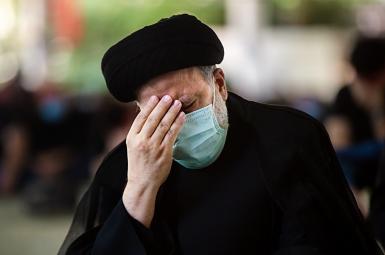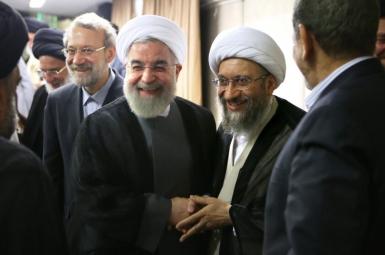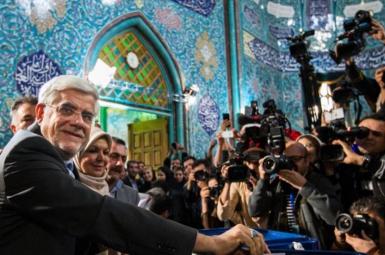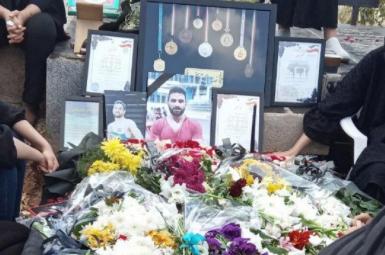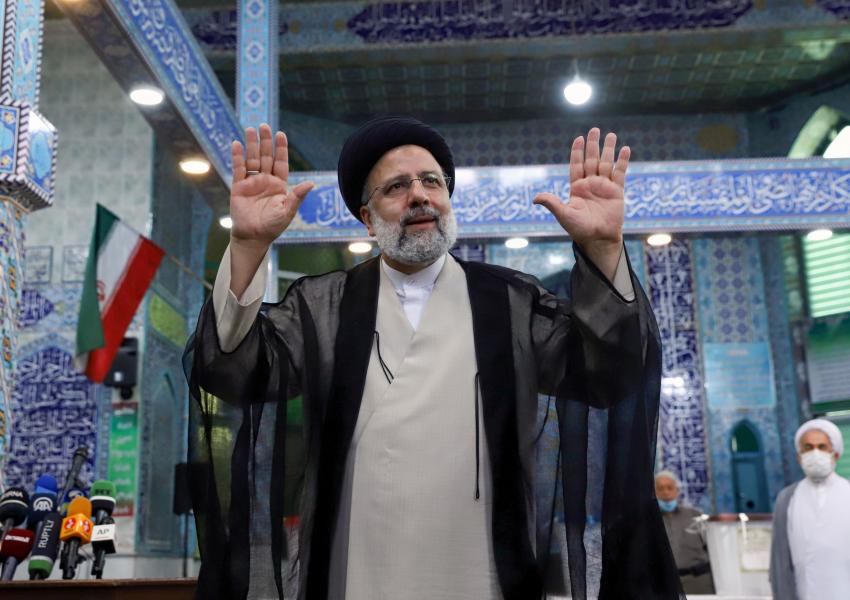
As Raisi Wins Iran Vote, 'Void And Blank Ballots' Come In Second Place
Ebrahim Raisi's (Raeesi) three rivals in the presidential race congratulated him on becoming Iran’s eighth president even before the first official results of Friday's controversial poll were announced. After 90 percent of the votes were counted by Saturday morning, Raisi, according to an election official, had the minimum 50 percent of all ballots cast required to avoid a run-off ballot
According to preliminary results based on votes counted, Raisi received 17.8 million of approximately 30 million cast, from 59.3 million eligible voters. The 50 percent turn-out is far lower than the 73 percent of 2013 and 2017, and around the level of 51 percent back in 1989 when Akbar Hashemi Rafsanjani won a second term.
Although Raisi's victory was seen by many as a forgone conclusion, an unprecedented number of 'blank and void votes' − at least 10 percent of ballots – reflected strong feelings over the election and after over two years of severe economic recession following punitive United States sanctions and the killing of hundreds of protesters by security forces since December 2017.
Many Iranian politicians and media pundits branded Friday's elections as stage-managed after many candidates who could pose a serious threat to Raisi − including former parliamentary speaker Ali Larijani, vice-President Es'haq Jahangiri, and former populist President Mahmoud Ahmadinejad – were not cleared to stand by the election watchdog Guardian Council.
Many reformists groups and politicians decided not to back either Abdolnasser Hemmati, former central bank governor, or Mohsen Mehralizadeh, a vice-president under the reformist Mohammad Khatami.
The results were disappointing for those reformists who broke ranks and endorsed Hemmati, who came fourth in the poll with around 3 million votes. With little wind at his back, and widespread abstentions, Hemmati had little chance of repeating the surprise victories of Khatami in 1997, Mahmoud Ahmadinejad in 2005 or Hassan Rouhani in 2013.
Many of those who campaigned for boycotting the elections have already rounded on those who endorsed Hemmati, and during the campaign there were accusations that anyone voting was complicit in murder. Mahdieh Golroo, the US-based former prisoner, argued in a tweet(link is external) that reformists had been “under the illusion they have a fixed percentage of votes.” Golroo suggested that past votes for reformists had been only protest votes against hardliners and that this time around people, faced with “humiliation,” took a different path by not voting.
In a commentary released on his Telegram channel Friday and published in Saturday's Etemad newspaper, prominent reformist journalist Abbas Abdi said all reformists, whether they voted or not, faced a "period of political hardship" where they would need a change of approach. Abdi also said the low turnout in the elections would mean the Iranian government lacked "sufficient capital” for success internationally.
Some analysts see the election solely in terms of Raisi being set up to succeed Ali Khamenei in due course as supreme leader, with his election win demonstrating recovery from defeat by Rouhani in the 2017 presidential election. Reza (Morad) Vaisi, Iran International TV analyst, tweeted (link is external) that congratulatory messages to Raisi from his election rivals were in fact congratulatory messages on becoming Iran's next supreme leader.
Others have portrayed being president as a far from straightforward challenge, with principlist critics blaming Rouhani rather than US sanctions for over two years’ stagflation. There have been many recent threats from rivals and parliamentarians that on leaving office Rouhani and associates will be prosecuted for mismanagement, as were several members of the Ahmadinejad government. In a letter to Raisi sent Saturday, Hemmati expressed the hope his government would bring “comfort and prosperity to our nation.”


